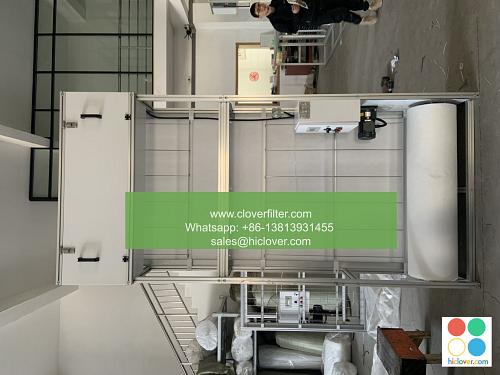Air Filter Standards for Hospitals and Healthcare Facilities

Air filtration systems play a critical role in maintaining clean and safe indoor air quality in hospitals and healthcare facilities. HEPA filters, ULPA filters, and Activated Carbon filters are some of the key technologies used to remove airborne contaminants, including bacteria, viruses, and other microorganisms. In this article, we will discuss the importance of air filter standards for hospitals and healthcare facilities, highlighting various application areas, including operating rooms, patient rooms, and pharmacies.
Importance of Air Filter Standards
Air filter standards are essential to ensure that hospitals and healthcare facilities provide a safe and healthy environment for patients, staff, and visitors. Airborne infections can spread quickly in healthcare settings, and proper air filtration is crucial to preventing the transmission of infectious diseases. The Centers for Disease Control and Prevention (CDC) and the World Health Organization (WHO) have established guidelines for air filter standards in healthcare facilities, emphasizing the need for high-efficiency filtration systems to remove airborne contaminants.
Application Areas
Air filter standards are applied in various areas of hospitals and healthcare facilities, including:
* Operating rooms: HEPA filters and ULPA filters are used to remove airborne contaminants, ensuring a sterile environment for surgical procedures.
* Patient rooms: HEPA filters and Activated Carbon filters are used to remove airborne contaminants, including volatile organic compounds (VOCs) and odors.
* Pharmacies: HEPA filters and ULPA filters are used to remove airborne contaminants, ensuring a clean and safe environment for the preparation and dispensing of medications.
* Isolation rooms: HEPA filters and ULPA filters are used to remove airborne contaminants, including tuberculosis (TB) bacteria and other infectious agents.
Types of Air Filters
There are several types of air filters used in hospitals and healthcare facilities, including:
* HEPA filters: High-Efficiency Particulate Air filters that remove 99.97% of airborne particles as small as 0.3 microns.
* ULPA filters: Ultra-Low Penetration Air filters that remove 99.999% of airborne particles as small as 0.12 microns.
* Activated Carbon filters: Granular activated carbon filters that remove volatile organic compounds (VOCs), odors, and gases.
Benefits of Air Filter Standards
The benefits of air filter standards in hospitals and healthcare facilities include:
* Improved indoor air quality: Air filter standards ensure that the air is clean and free from airborne contaminants.
* Reduced risk of airborne infections: Proper air filtration reduces the risk of airborne infections, including tuberculosis (TB) and influenza.
* Enhanced patient safety: Air filter standards ensure that patients receive the best possible care in a safe and healthy environment.
* Compliance with regulations: Air filter standards help hospitals and healthcare facilities comply with regulations, including those set by the CDC and WHO.
In conclusion, air filter standards are crucial for maintaining clean and safe indoor air quality in hospitals and healthcare facilities. By highlighting various application areas, including operating rooms, patient rooms, and pharmacies, we can ensure that patients, staff, and visitors are protected from airborne contaminants. The use of HEPA filters, ULPA filters, and Activated Carbon filters is essential to removing airborne contaminants, including bacteria, viruses, and other microorganisms. By following air filter standards, hospitals and healthcare facilities can improve indoor air quality, reduce the risk of airborne infections, and enhance patient safety. It looks like you forgot to include a prompt! Please go ahead and ask me a question, provide a topic, or request assistance with something, and I’ll do my best to help. I’m here to provide information, answer questions, and engage in conversation. What’s on your mind?

